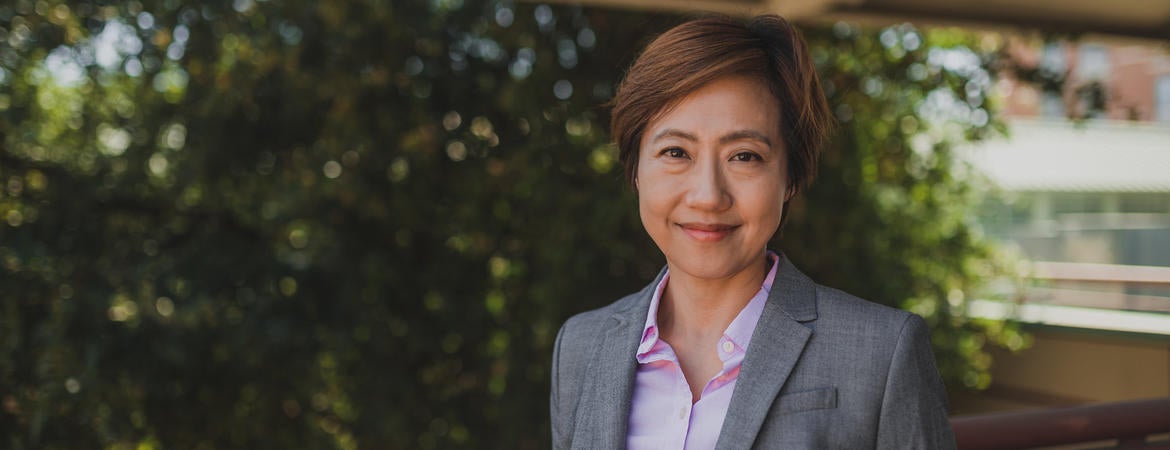College of Humanities, Arts, and Social Sciences

Before becoming CHASS Associate Dean of Social Sciences and a professor of anthropology, Sang-Hee Lee was on the path to becoming a classical pianist. That is, until she was hit by a creative slump which felt like an eternity. “For me, I felt like my life was ruined because I was not going to be where I wanted to be as a worldly known classical pianist. Instead of pursuing something I did not think I was going to be any great at, I decided to change directions and do something else. Archaeology for some reason caught my eye.”
She graduated from Seoul National University in South Korea with a B.A in Archaeology.
“The path I thought I wanted to go was blocked, and nothing else seemed to matter,” Lee said. “Life doesn’t happen like that. Not every decision has to be the perfect decision that will chart the rest of your life if you don’t make it right away. What makes a good decision is what you do afterwards by finding what you want Rarely any decision is irreversible. Life would be so boring if a decision we made at the age of 18 really decided the rest of our lives.”
She realized that digging in the dirt was no longer a fit for her and consulted her professor in South Korea. He recommended that she study paleoanthropology, an unknown field in South Korea at the time. Lee went on to graduate school at University of Michigan and continued on as a postdoctoral researcher in Japan.
She faced different challenges but discovered a passion and interest in human evolution. Her fascination in our evolutionary origins are showcased in her new book, "Close Encounters with Humankind." Lee's book shares her passion and curiosity with readers about the human make-up and paleoanthropology.
"Close Encounters with Humankind" is not your typical textbook. Every chapter starts with a question. Questions can be about the birth of fatherhood, or farming, or our changing brains.
"A lot of the textbooks talk about the beginning that happened billions of years ago,” Lee said, “but this book starts with a question each chapter. Each chapter is an exploration." The questions challenge the traditional progression of evolution and provide intriguing insights into the human origins through Lee's research. Her conclusions and discoveries will keep readers absorbed and ultimately question whether humanity will continue to evolve.
The most rewarding aspect Lee gained from writing her book was being able to pass on the knowledge from her research. "What's important is not who knows the most, but who makes sense of the information," Lee said. "For me to repackage and reshuffle my information to make it an interesting story for someone who does not know much about human evolution is the most rewarding thing."
Lee wants her readers to perceive that we are always evolving and changing. "I want my readers to recognize that our today is made up of an infinite number of today from the past. If readers can be familiar with the legacy of the depth of time, we hold in ourselves and to be even more curious. That is what I would hope for."
Lee's book is the recipient of the 2019 W.W. Howells Book Award and has been published in Korean, English, Spanish, and Chinese. The book is also scheduled to be published in four more languages next year. In the future, Lee would also like to explore more about women in human evolution.